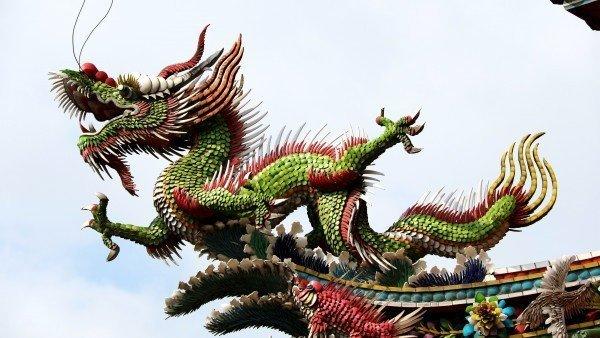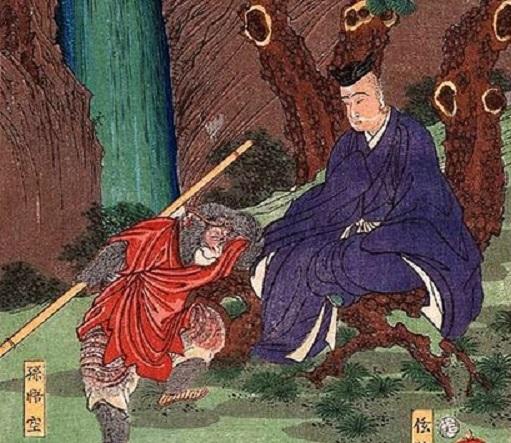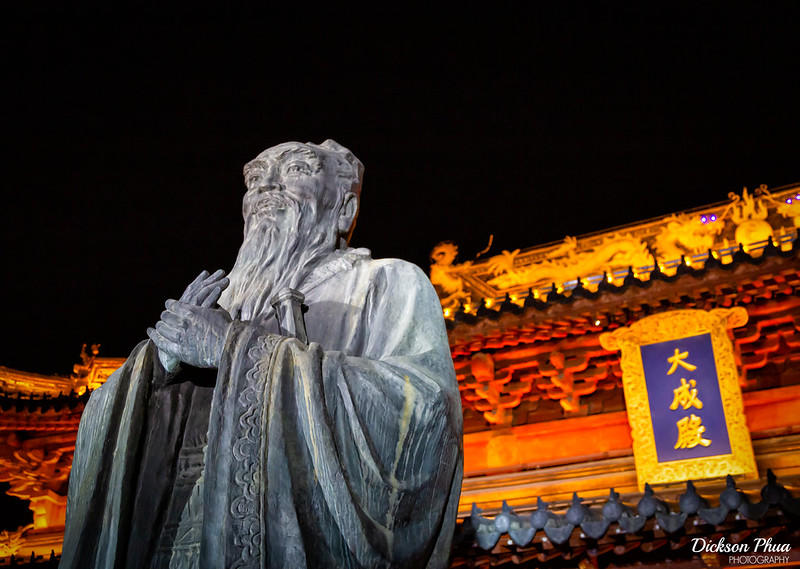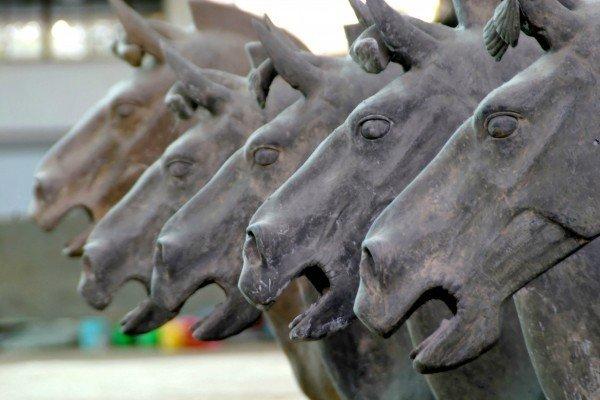Contrary to the belief that China is irreligious, there is a strong belief system with various figures, both human and divine, that is deeply revered by its people. While there are no designated worship days or religious congregations, impactful emperors, inspirational citizens, ancestors, dragons, monkeys, and deities continue to play an important role in Chinese culture.
From qilin mythology to the 12 animals of the zodiac, there are many contributors when it comes to explaining what Chinese mythology is.
Want to give private lessons?
Join the Superprof community and share your knowledge with inquiring and motivated students.
Defining Chinese Mythology
Answering the question ‘what is Chinese mythology’ necessitates collapsing famous Chinese myths into a definition.
In essence, Chinese mythology comprises a collection of Chinese mythology stories and famous Chinese myths. Like qilin Chinese mythology, for instance, Chinese legends are rich in symbolism. By definition, Chinese mythological stories are an expansive collection of folklore and religious tradition that has been passed down through the art of storytelling over many centuries. They are both whimsical and reverential.

Remarkably, even though China comprises at least 58 different ethnicities, each has its unique history, traditions and collection of Chinese mythology stories. Despite this diversity, the common threads that make them different to other religions are useful in answering the question: what is Chinese mythology?
Chinese Mythology Lacks Hierarchical Structure
Unlike Western religions with distinct hierarchies, Chinese deities do not follow a progression of power. Chinese legends or gods possess equal power but are not limited to a specific domain. For example, Yue Xia Lao Ren, the god of love, is prayed to for romance. By contrast, men seeking virility may consume snake wine, as snakes are linked to the powerful dragon in Chinese mythology that, represents strength.
One of the most famous of all Chinese mythology stories is the phoenix which complements the dragon and symbolises intuition and sound judgment. Chinese weddings, which often depict the phoenix and dragon together as symbols of good fortune and the perfect match, are a good example of how famous Chinese myths are still present in everyday culture.
Want to give private lessons?
Join the Superprof community and share your knowledge with inquiring and motivated students.
Ancestor Worship
While Western cultures may display a few portraits of grandparents or store snapshots in albums, China takes the honouring of ancestors to another level. While most ancestors are honoured through altars, wealthier homes will even dedicate entire rooms to them.
Regular food offerings of food are made, and important decisions are seldom made without consultation with the ancestors. Unlike Western cultures, China has a specific day, Qing Ming (tomb-sweeping festival) which is dedicated to visiting ancestors' graves. On this day, people tend to graves, burn joss paper and leave food offerings. Qing Ming is a vibrant celebration filled with colour, noise, laughter, and shared memories. By contrast, Remembrance Day celebrated by the West is sombre and focuses on those who died in defence of their country, not on ancestral celebration.
Gods and Legends
From Qilin Chinese mythology to other famous Chinese mythology stories, you will find gods and legends that govern most aspects of life and culture for the Chinese people. There is no one higher power and the closest mythical legends come to being supreme, deified beings are summarised by the following characters:
- Shangdi (??): this role could be the closest to what many would define as a creator.
- Tian (?): a representation of heaven known as ‘sky’.
- Nuwa/Fuxi (?? / ??): According to famous Chinese myths, Nuwa created the human race and Fuxi, her husband and brother, is her companion.
- Pangu (??): believed to be the first sentient being; orchestrated creation.
- Yu Huang (??): called the Jade Emperor, is known as the heavenly Grandfather and is considered to be one of the most important Taoist gods.

In a more precise description, Shangdi played a crucial role in enabling creation, while other deities contributed to shaping the world. Assisting them were the Three August Ones - Fuxi, known for his wisdom, Shennong, the divine farmer who bestowed agriculture upon us, and Huang Di, the revered Yellow Emperor, traditionally regarded as the first Chinese ruler. It is believed that the Yellow Emperor even commissioned the Terra Cotta army to safeguard him in the afterlife.
The five additional emperors believed to have shaped Chinese mythology are:
- Shaohao (??): led the 'Eastern Barbarians'
- Zhuanxu (??): the grandson of the Yellow Emperor
- Emperor Ku (??): another grandson of the Yellow Emperor
- Yao (?): a great-grandson of the Yellow Emperor
- Shun (?): believed to have inherited Yao's position as a result of his superior morals and abilities, however, he is not Shun’s son.
The revered symbols, like Qilin, in Qilin Chinese mythology are revered due to their exceptional benevolence and moral principles. They serve as role models and guides for virtuous living to the people who aspire to them. Besides Chinese legends, folklore and Chinese mythology myths, there is an emphasis on honouring real historical figures and even acknowledgement that they could be possible creators. Despite this, Chinese mythology boasts an astonishing array of gods, some of whom are even mythological animals.
Chinese Legends Who Are Worshipped
The everyday people of China seem to truly resonate with folk heroes who have demonstrated remarkable selflessness in preserving and progressing Chinese culture and society. As already mentioned ancestors hold a profound connection to their belief system, with the belief that they can intercede with the gods on their behalf. It is not uncommon for heroes from folktales to offer empowerment and inspiration that takes precedence over deities.
For instance:
- Princess Wencheng, known as 'Princess Civiliser,' holds significance in diplomatic affairs.
- Hua Mulan, a celebrated folk hero, is praised for her bravery and combat prowess.
- General Yue Fei embodies the Chinese character's loyalty.
- Mu Guiying, an epitome of courage and strength, led a brave band of widows in war to protect the dynasty.
As you can see, contrary to the patriarchal emphasis of most Western religions, Chinese mythology has very little trouble elevating women to the status of goddess.
Find out more about how these figures contribute to the importance of Chinese mythology.

Are Confucius, Laozi and Buddha Chinese Legends?
The Chinese pantheon is often misunderstood as containing only Buddha, Confucius, and Laozi. However, these were philosophers, not gods. While religion demands faith, philosophy requires thought. Despite this distinction, many people still worship in Buddhist and Taoist temples, and Confucius is revered as a teacher rather than a spiritual leader. Interestingly, these ancient philosophers provide a bridge to the Western concept of religion more than the gods in Chinese mythology.
Buddhist temples display an array of statues that different aspects of Buddha, reflecting Chinese Buddhism's history that dates back to the Han Dynasty. It is therefore unsurprising that Buddhism has permeated every aspect of life in China and influences naming customs and future decisions of Chinese people.
On the other hand, Confucianism follows a far more rigid structure including rules and rituals for its followers. It’s worth noting that Confucius claimed to channel centuries of wisdom, positioning himself advantageously, yet his teachings were suppressed during the Qin Dynasty and later experienced a revival in the Han Dynasty.
Taoism, the most mystical of the three philosophies, advocates following 'The Way' or 'The Path,' and is derived from the Dao, which is found in one of the oldest Chinese texts, the I Ching. Its essence is characterised by aligning human activity and behaviour with the cycles of nature.
Chinese culture, which leans toward pragmatism, approaches the temples of these ancient masters with specific questions or favours to ask rather than engaging in profound existential ponderings. In addition, the Chinese already possess well-established beliefs about the afterlife, evident in their rich folk tales.
Unlike Western thinkers, the Chinese are less inclined to question their purpose or existence. Instead, they have the innate ability to simply embrace life as it is, while simultaneously embellishing it with tales of gods, goddesses, dragons, and celestial bodies like the moon.
Whether it is imagery from Qilin Chinese mythology or ancient folklore, you’ll find that every statue and Chinese artefact holds a story that contributes to the deep richness and symbolism of Chinese mythology.
These captivating narratives provide a fascinating window into the country's cultural heritage which includes an enduring fascination with its diverse pantheon of characters.
Chinese mythology is complex, not only is it integral to society, but it is deeply personal. It may not be as structured as the belief systems that we are familiar with but, it is far more prevalent in the daily life and culture of the Chinese people than Western religions are.
Want to give private lessons?
Join the Superprof community and share your knowledge with inquiring and motivated students.
Summarise with AI





